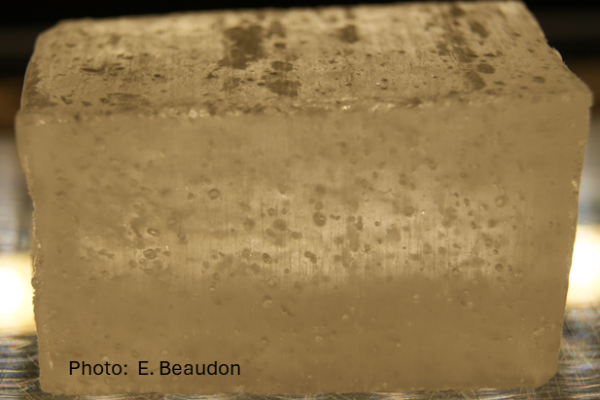New Award to Study Life in Glaciers

School of Earth Science Assistant Professors Alex Michaud and Emilie Beaudon were awarded a one-year grant from the College of Arts and Science to study how life persists in glaciers. The grant was funded through the Exploratory Grants Program, which calls for exploratory project ideas through unique collaboration with a goal of high scientific payoff. In their project, they aim to connect the microfluidic detection capabilities of fluorescence assisted flow cytometry (like a blood cell counting device from a hospital, but with the capabilities to see single bacterial cells) with the high-resolution imaging and surface elemental mapping capabilities of scanning electron microscopy (imagine a microscopic topographic map of the elements that make up the mineral particle). Their goal is to get these instruments working in series to detect bacterial cells on individual mineral particles and isolate these cells on particles from dusty ice core layers. They suspect that dust particles in ice satisfy the requirements for life to persist (i.e., a source of energy and liquid water), and these new instrumental capabilities will allow the team to detect this life and understand how and where it is obtaining energy. The ASC grant money, 1:1 matched with SES funds, will provide support to one graduate student for one semester and support for materials, supplies, and instrument user time.


